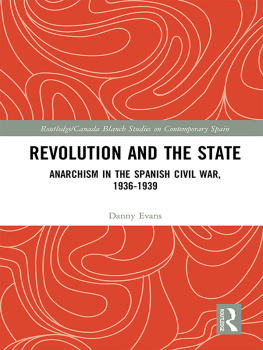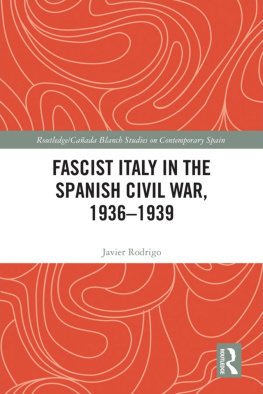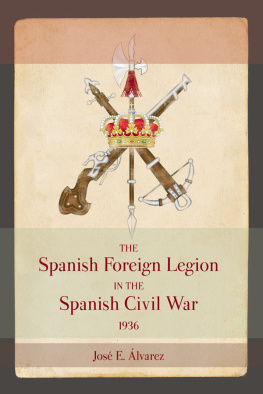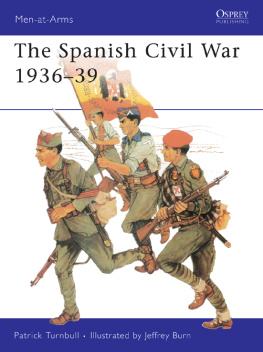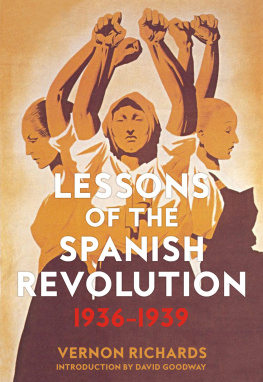Gendering Postsocialism
This book analyses the processes of revolution and state reconstruction that took place in the Republican zone during the Spanish civil war. It focuses on the radical anarchists who sought to advance the revolutionary agenda. Their activity came into conflict with the leaders of the libertarian organisations committed to the reconstruction of the Republican state following its near collapse in July 1936. This process implied participation not only in the organs of governance but also in the ideological reconstitution of the Republicas a patriarchal and national entity. Using original sources, the book shows that the opposition to this process was both broader and more ideologically consistent than has hitherto been assumed, and that, in spite of its heterogeneity, it united around a common revolutionary programme. This resistance to state reconstruction was informed by the essential insight of anarchism: that the function and purpose of the modern state cannot be transformed from within. By situating the struggles of the radical anarchists within the contested process of state reconstruction, the book affirms the continued relevance of this insight to the study of the Spanish revolution.
Danny Evans is a Visiting Research Fellow at the Centre for the History of Ibero-America at the University of Leeds. He has published on anarchism and anti-fascism in a special issue of the International Journal of Iberian Studies that he co-edited with James Michael Yeoman on New Approaches to Spanish Anarchism (2016). His interests include the anarchist commitment to internationalism and gender equality in Spain, and the post-revolutionary experiences of defeat and exile.
Routledge/Canada Blanch Studies on Contemporary Spain
Edited by Paul Preston and Sebastian Balfour, Caada Blanch Centre for Contemporary Spanish Studies, London School of Economics, UK
17 The Francoist Military Trials
Terror and Complicity, 19391945
Peter Anderson
18 The Politics and Memory of Democratic Transition
The Spanish Model
Edited by Diego Muro and Gregorio Alonso
19 Mass Killings and Violence in Spain, 19361952
Grappling with the Past
Edited by Peter Anderson and Miguel ngel del Arco Blanco
20 Claiming the City and Contesting the State
Squatting, Community Formation and Democratization in Spain (19551986)
Inbal Ofer
21 Guns, Culture and Moors
Racial Perceptions, Cultural Impact and the Moroccan Participation in the Spanish Civil War (19361939)
Ali Al-Tuma
22 Revolution and the State
Anarchism in the Spanish Civil War, 19361939
Danny Evans
Also published in association with the Caada Blanch Centre:
Spain and the Great Powers in the Twentieth Century
Edited by Sebastian Balfour and Paul Preston
The Politics of Contemporary Spain
Edited by Sebastian Balfour
Revolution and the State
Anarchism in the Spanish Civil War, 19361939
Danny Evans
First published 2018
by Routledge
2 Park Square, Milton Park, Abingdon, Oxon OX14 4RN
and by Routledge
711 Third Avenue, New York, NY 10017
Routledge is an imprint of the Taylor & Francis Group, an informa business
2018 Danny Evans
The right of Danny Evans to be identified as author of this work has been asserted by him in accordance with sections 77 and 78 of the Copyright, Designs and Patents Act 1988.
All rights reserved. No part of this book may be reprinted or reproduced or utilised in any form or by any electronic, mechanical, or other means, now known or hereafter invented, including photocopying and recording, or in any information storage or retrieval system, without permission in writing from the publishers.
Trademark notice: Product or corporate names may be trademarks or registered trademarks, and are used only for identification and explanation without intent to infringe.
British Library Cataloguing in Publication Data
A catalogue record for this book is available from the British Library
Library of Congress Cataloging in Publication Data
A catalog record for this book has been requested
ISBN: 978-1-138-06314-3 (hbk)
ISBN: 978-1-315-16123-5 (ebk)
Dedication: At the beginning of my research I had the privilege of corresponding with the late Antonia Fontanillas, a former member of the Juventudes Libertarias, whose commitment to preserving the memory of her generation and its struggle for a better world belied her years and serves as an inspiration. This book is dedicated to her.
This book began life as a PhD thesis made possible by an Arts and Humanities Research Council studentship. Research trips were partly funded by the School of Languages, Cultures and Societies at the University of Leeds, the AHRC Research Training Support Grant Funding scheme and the Leeds Humanities Research Institute.
The notion of undertaking original research into Spanish anarchism did not occur to me until I had lived in Spain for a couple of years. I owe a great deal to the friends whose patience and generosity made learning Spanish so pleasurable, and to the enormous good fortune I had in meeting Uta, Marc, Gustavo, Alfredo, Vanesa, David, Patricia, the Garcia Anguita family, Oscar, Mara, Helena, Jordi and many others, particularly the stalwarts of the Spanish soul scene. Any difficulty that might have been caused by leaving Spain was alleviated by the presence in Leeds of old friends who made me feel at home again: Carl, Mallie, Mark, Karen, Juan, Maria and others; and new friends made through political and cultural activities, in particular those I met through the Critical Cinema group and Leeds No Borders.
Richard Cleminson and Angel Smith were extremely supportive supervisors of my PhD thesis and their guidance has been enormously helpful in shaping the present work. I am also grateful to the editorial team at Routledge and to the anonymous reviewers whose comments helped to improve this book. Many other friends, colleagues and historians have provided support and advice over the past four years and I would like to thank David Goodway, Jim Yeoman, Chris Ealham, Dolors Marn, Peter Anderson, Merc Lzaro Garca, Claudio Hernndez, Kees Rodenburg, Gregorio Alonso, Rafael Tapia, Joey Whitfield, Miguel ngel del Arco Blanco, Diana Battaglia, Josep Antoni Pozo Gonzlez, Daniel Mourenza, Francisco de Paula, Christian Hgsbjerg, and in particular Agustn Guillamn. I am also grateful to Edu, Javi, Silvia, Ruth, Quinnie, Colin, Ana, Arantxa and Andy for providing a bed and/or a warm welcome on research trips to Barcelona, Madrid and London, and especially to Paz and Iu, who very kindly put me up for a week when conducting last-minute research for the book.
I am very lucky to have a network of loving, intelligent and funny family and friends that I can rely on for support and encouragement. I would like to thank in particular my parents, Helen, Rach, Phil, Peter and my much-missed grandmother. Finally, I am grateful for the love and companionship of my partner Liz. Her empathy and encouragement have been a constant source of reassurance and support, and her insight has helped sharpen many of the ideas contained in this work.

